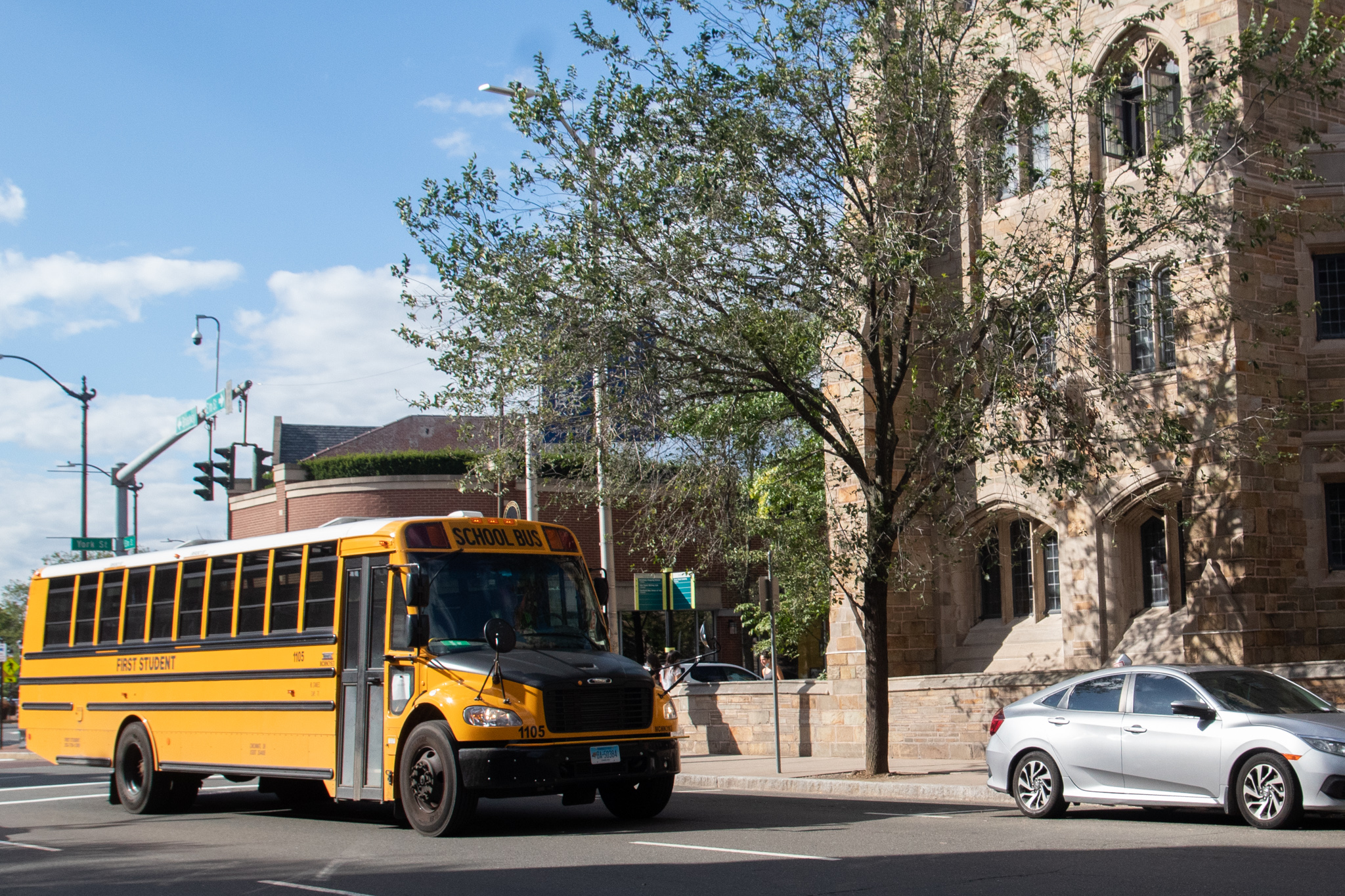Four New Haven Public Schools implement composting pilot program
If the new 18-month composting pilot program is successful, organizers hope to create a long-term composting program for all schools in the city.

Zoe Berg, Senior Photographer
An 18-month composting pilot program is diverting food waste in four New Haven public schools, the first policy of its kind at NHPS. Upon completion of the pilot, the program’s organizers hope to expand the composting program to all New Haven public schools.
So far, not including numbers from January, February or March, the program has diverted 4,225 pounds, Michelle Martinelli, the Energy and Sustainability Manager for NHPS, told the News.
The pilot program started in September at New Haven Academy and Barnard Environmental Science & Technology School, in November at High School in the Community, and in December at John S. Martinez School.
The composting program began when NHPS Chief Operating Officer Thomas Lamb tasked Martinelli with creating a unified, district-wide composting program, rather than having individual schools facilitate their own composting policies.
Individual schools have previously had composting programs, such as partnerships with Peels and Wheels, but this is the first implementation of a unified district policy. Meanwhile, advocates with the New Haven Climate Movement have pushed for expanded composting in schools to the Board of Education.
When Blue Earth Compost, a food scrap collection service for the Northeast region, asked Martinelli if NHPS would be interested in an 18-month pilot, Martinelli “jumped at the chance,” she said.
Each week, Blue Earth Compost provides the schools with large bins for food scraps and collects the bins at the end of the week. Students are encouraged to complete the separation of food scraps from trash on their own. Blue Earth sells the compost on its website.
“At New Haven Academy, I believe they’re filling up two large bins every day,” Martinelli said.
When it comes to the educational aspect of the pilot, Farm2X, a company that works with schools on farm-to-table programming, is instructing teachers how to oversee the composting process. Farm2X also facilitates student involvement in the composting programs by encouraging students to play an active role in making sure they’re composting their own food waste.
According to Samuel King, the Chief Financial Officer of Blue Earth Compost, the pilot is being funded by a grant from ReFED — a national nonprofit working to end food loss and waste.
“New Haven joins about ten other schools throughout the state that are also doing this grant, but New Haven is our biggest school district that we’re working with and has the most schools that we’re working with,” King told the News.
While the composting process seems simple, according to King, it does not run as smoothly as one may think. He said it takes a lot of “hand-holding” for schools to understand how to run the composting programs with complete student and administrator participation.
Blue Earth also partners with Haven’s Harvest and Food Rescue US to provide food scraps to those who may want or need them before they get turned into compost.
“Our hope is that in the coming years that we will be running these kinds of programs in all the schools in New Haven. Last year, a proposal was submitted to the school district for what that could look like, and Michelle Martinelli has been a pretty darn good advocate for it,” King said. “So we feel pretty confident that something will happen.”
As an advocate of the composting program, Martinelli has spoken to students in environmental clubs at schools across New Haven.
Rosie Hampson, a senior at Wilbur Cross High School and activist with the New Haven Climate Movement, told the News that Martinelli came to speak to her environmental club about composting and recycling programs.
“She really highlighted a lot of the benefits of the initiative,” Hampson said.
Blue Earth Compost was started in 2013.







